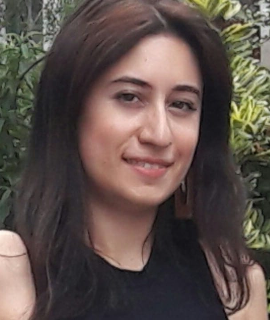Title : Microfluidic Electrochemistry/Mass Spectrometry: Potential Applications in Neurological Disorders
Abstract:
Electrochemistry/Mass Spectrometry is a pure instrumental approach that can mimic the metabolic process in humans. Metabolic reactions are mainly oxidations and reactions, thereby electrochemistry is an ideal alternative to the current in vitro and in vivo methods. Hyphenating electrochemical methods with Mass Spectrometry enables the synthesis and detection of metabolites1. Microfluidics is a highly interdisciplinary field combining science with engineering. Microfluidic devices also known as chips are tiny devices operating at extremely low volumes (μL to pL), in which fluids are transported, mixed and separated. The combination of Electrochemistry with Microfluidics offers portability, faster reaction times, low volumes of reagents and wastes, reproducibility and affordability. The oxidation of dopamine leads to the formation of dopamine o-quinone and aminochrome. Toxic metabolites that are probably the causal agents of Parkinson’s disease. According to literature, dopamine o-quinone and aminochrome induce 1) Protein degradation dysfunction 2) Mitochondria dysfunction 3) Alpha synuclein aggregation and 4) Oxidative stress2. Herein, the successful mimicry of dopamine oxidation into dopamine o-quinone and aminochrome is described by Microfluidic Electrochemistry/Mass spectrometry, as an instrumental approach to monitor the reactive metabolites in less than ten minutes. Traditional in vitro and in vivo methods require several months of tedious procedures. The cost of chips is affordable and the unethical use of animal models can be significantly reduced in medicinal and pharmaceutical research1. The technique has potential applications as an affordable and fast screening method for the identification of reactive metabolites in neurological disorders.
1. Vasiliadou, R.; Nasr Esfahani, M.M.; Brown, N.J.; Welham, K.J. A Disposable Microfluidic Device with a Screen-
Printed Electrode for Mimicking Phase II Metabolism. Sensors 2016, 16, 1418.
2. Monoz, P.; Melendez, C.; Paris, I.; Sequra-Aquilar, J. Molecular and neurochemical mechanism dopamine oxidation to 0-quinone in Parkinson disease pathogenesis. Toxicity and Autophage in Neurodegenerative Disorders; Springer: Basel, Switzerland, 2015, 205–223
What will audience learn from your presentation?
• Familiarize with the emerging fields of Microfluidics and Electrochemistry/Mass spectrometry towards the mimicry of endogenous and exogenous metabolism in humans. An affordable and fast instrumental approach that identifies reactive metabolites in just a few minutes. The microfluidic devices can be used as screening methods to identify reactive metabolites, which might be the causal agents of neurological disorders or diseases. Researchers, academics and doctoral students can benefit from the approach since it can be improve their study design, acquire data relatively fast, reduce the consumption of expensive reagents.
• Introduction to the main categories of reactive metabolites. Researchers, academics and doctoral students will understand how the reactive metabolites can cause Parkinson disease. Why is important to understand their formation and mechanisms of action. Important parameters for diagnosis, treatment drug design and development.
• Interdisciplinary in Neurology. The combination of Chemistry, Biology, Medicine and Engineering can answer important neurological questions/hypothesis.




